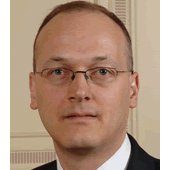I write this article from the United Kingdom, from where Joseph Daul stands out for two reasons. The first is one I have already mentioned, agriculture. It is widely believed in the UK that the CAP is a bad policy, in that it does not achieve the right objectives for European agriculture. It is also widely believed to be an illegitimate policy, in that everyone knows that it is a bad policy but that still it can’t be changed. Joseph Daul stands out against this. He doesn’t think that the CAP is a bad policy, and he is proof that it is not an illegitimate policy either. British critics of the CAP cannot simply assume the correctness of their viewpoint: no, they have to argue for it with politicians of the stature and experience of Joseph Daul.
The second reason he stands out is the fact that such a politician can perform such a role in the European Parliament. Any British centre-right MEP who sought such a status would find himself far from the mainstream within his own party. Joseph Daul is living proof of the relevance of the European Parliament itself. That is why his views matter.
And what views. He was born in Strasbourg and lives in the region to this day. He is one of the very few MEPs for whom meetings in Strasbourg are more convenient than meetings held in Brussels. You will not be surprised that he opposes the One Seat campaign. There is nothing more to say.
I welcome his view that the far right group ITS should be allowed to take its expected allocation of committee places and other privileges in the European Parliament. However abhorrent their views, the far right MEPs are indeed elected. The socialist leader Martin Schulz suggested that they should be frozen out of the system: Daul insists on playing by the rules.
A further consequence of playing by the rules, I suppose, is that the EP is dominated by its two largest party groups. Power does not move from left to right or from right to left, but is shared between the two of them all the time. I am touched that Daul has rethought his own concerns about this system, having seen coalitions of different kinds form around different issues, but always based on the idea of the majority. He should not think, though, that the lack of explicitly party-based competition is purely a French concern. Such competition would raise the clarity of European politics all over the EU.
On the broader institutional question, he thinks of himself as a realist. He does not worry what the constitutional treaty is called – treaty, constitution, whatever – but is concerned that a compromise should be found. He makes no suggestions as to how that compromise will be found, other than to repeat that 18 member states have ratified the constitution and 2 have rejected it. It is a problem.
The idea of a European referendum is a good one, he says, but he is not sure that Europe will be ready for it by 2009. What he does not consider is whether the referendum is actually a solution to the problem he sets himself. Nicolas Sarkozy, of whom he speaks warmly, believes that the current text cannot be ratified by the current method, and so wishes to change the text.
If the constitutional process needs a breakthrough, the referendum may well be what is needed. How realistic is it to stick with a procedure that has already proved itself a failure?
Back to agriculture. Joseph Daul has been criticised for defending agricultural interests to the exclusion of all else, come what may. He is, in a sense, the personification of Donald Rumsfeld’s “old Europe”. He has even been the subject of various allegations regarding the use of public money. He denies the allegations, let us be clear, and we shall pass over them here. What matters is the political consideration: old Europe or new?
He raises the idea of “food security” as a policy objective of the European Union, not merely a simple agriculture policy. Once, food security meant having enough food, but that problem is now solved. These days, food security means environmental sustainability and biodiversity, considerations that a purely free market will have difficulty delivering.
I write this article in London on a day when it is reported that 160,000 turkeys in a shed in the east of England must be destroyed for fear of the H5N1 avian flu virus. This virus spreads quite easily across national borders – wild birds do not carry passports, after all – and only a European approach can resist it.
If the EU is to protect the environment and defend values beyond simple market measures of quantity and price, that does not make it old Europe. That is new Europe, in the best sense of both words.


Follow the comments: |
|
